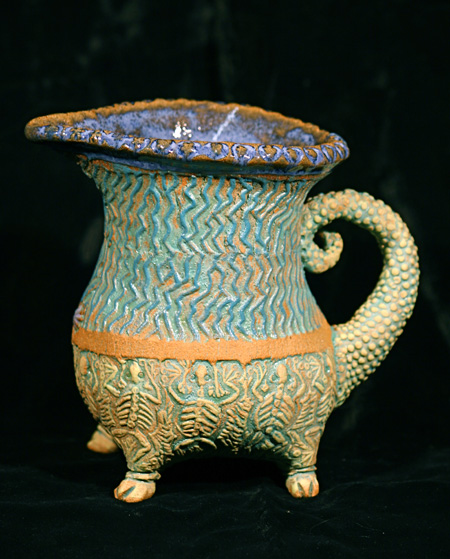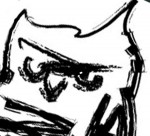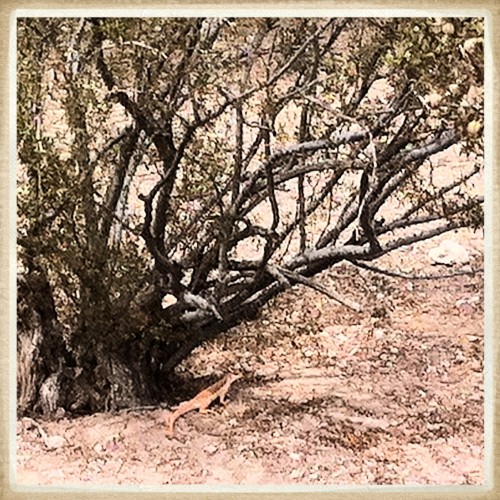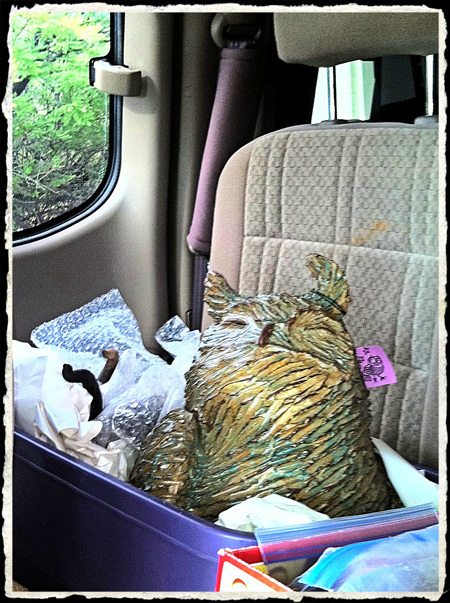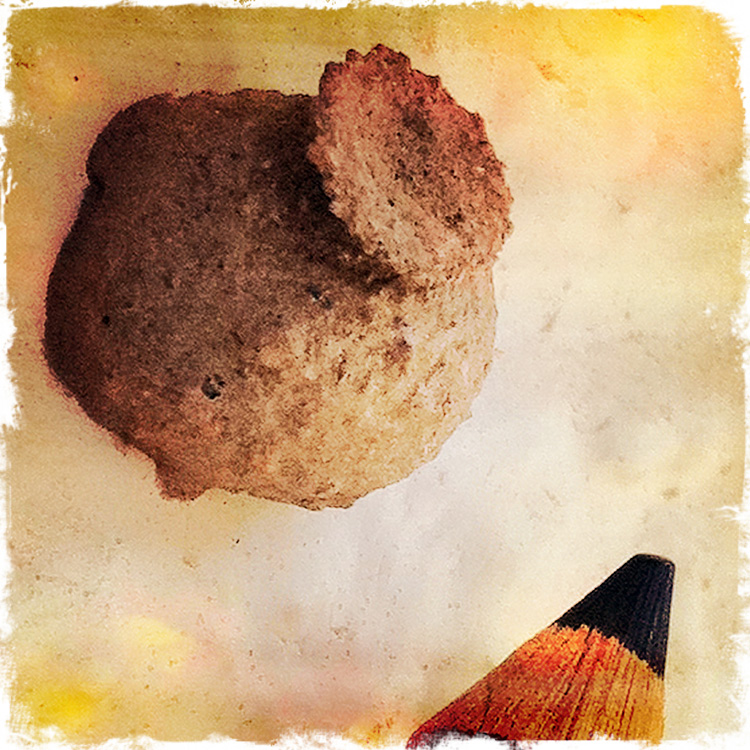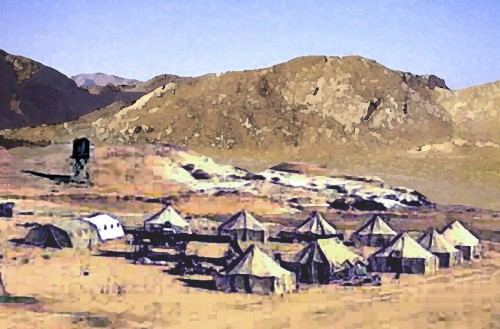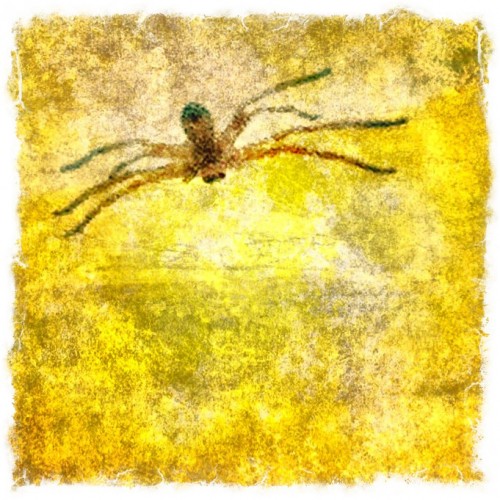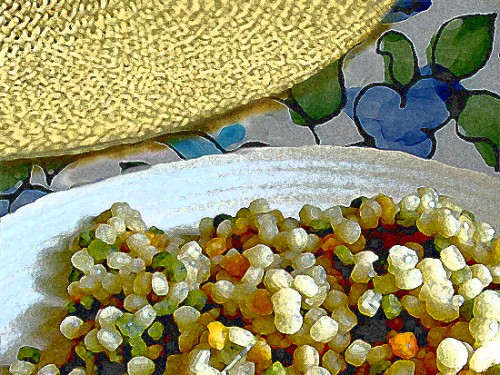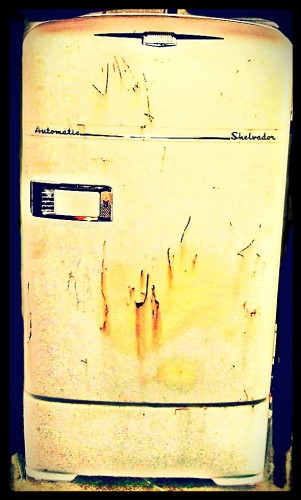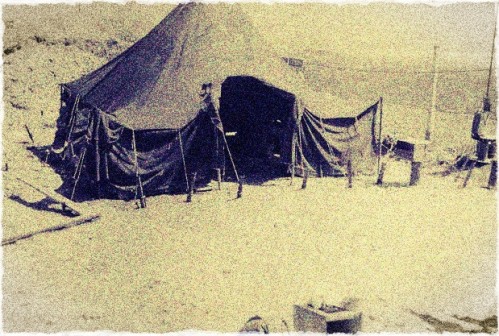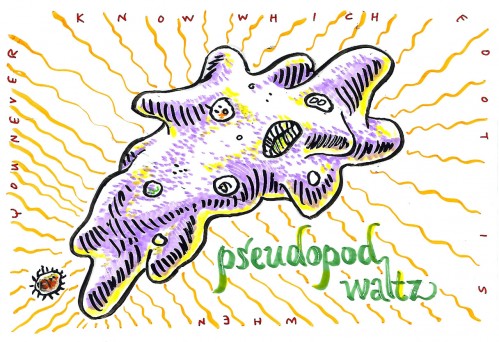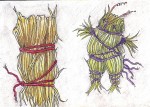This is the eleventh installment of a series. There’s a link at the bottom of the page to the twelfth installment. Or, to read from the very beginning, click here.
Previously:
“Our other on-going personnel matter,” Amit Chayes had explained about the sound of argument coming  from the mess-tent. “I take full responsibility. I should have hired a cook with more experience, only, it seemed so fortunate to find a site photographer who was willing to cook as well. But we’ve had to re-kasher the refrigerator twice this season. If you’ll excuse me, I should go to mediate.”
from the mess-tent. “I take full responsibility. I should have hired a cook with more experience, only, it seemed so fortunate to find a site photographer who was willing to cook as well. But we’ve had to re-kasher the refrigerator twice this season. If you’ll excuse me, I should go to mediate.”
Natural systems: flowers and bees, pottery and poetry
“Mikka quit?” Rory’s disbelieving shout of laughter caused Einer Wayfarer’s head to snap back upright.
The professor had volunteered to help in the lab after the evening meal partly out of the acerbic goodness of her heart, and because she was interested in seeing how these things were done. Recording data points from Rory’s grimy Area D field notebook onto locus cards proved to be no less mind-numbingly tedious work than the actual digging, so she felt entitled to occupy herself by eavesdropping on the staff’s conversation. That was worth staying awake for – the patois in the group was a casual shakshuka of old world languages, bound together in a matrix of English of several flavors. And it wasn’t really eavesdropping: with a voice as loud as Rory’s, hearing was hardly avoidable in the small, stuffy room. Now conversation had come around to gossip about the afternoon’s kitchen fuss and the absent Dario, who, per Amit according to Zvia, had been appointed as replacement for the unsatisfactorily breezy Mikka.
“She quit on the spot as cook,” Zvi said, “but not as photographer – she’ll be concentrating on site-and-find photography for the last two weeks of the dig.”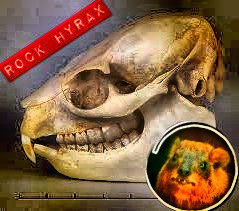
Rory groaned. “What did she do this time?”
“Moshe found the skull of a shafan…” Lior looked at Zvia for vocabulary help.
“Rock hyrax,” she supplied.
“… a hyrax skull on the dairy shelf in the refrigerator,” Lior explained, his forehead crinkled. “Not cool!”
“So they’re yanking Dario off the hill to cook?” Rory moaned. Wayfarer looked over in time to see him pretend to tear out the hair at his temples. “Damn! That leaves me short of slave-labor in Area D.” When he took his big hands away, the brown hanks twisted out to either side like unkempt ram’s horns.
“You’ve got Eric. And Dr. Wayfarer,” Zvi reminded him gently, tipping her head toward the far corner of the room. Rory moaned again, but not quietly enough.
“I can hear you, you know,” the professor pointed out. “And at least I stay awake under your barrage of monotonous numbers,” she told him.
Rory grinned. “It’s true – it’s more than a fair trade. It’s just that your shappO ain’t as quaint.”
Eric, more concerned about academic technicalities than head-gear, wanted to know, “How can they force him to cook? Isn’t he getting credit for excavating?”
“More importantly,” inquired Rory, “does he actually know anything about feeding people?”
Wayfarer heard Zvia make a small noise of modest expertise. Everyone looked at her expectantly.
“Actually,” she said, “they aren’t, he isn’t, and he does.” She explained, “Remember, he’s primarily a lit student, not an archæologist – Amit took him on as a favor for Dr. Szeringka…” (that makes two of us, thought Wayfarer) “…so he’s purely a volunteer, I guess. And Amit said Dario was happy to take over the kitchen. Supposedly he learned English at some school in the UK by working for the whole year as the cook.”
“Scotland,” stated Wayfarer, mostly to herself.
“Yes,” said Zvi, “Amit said Edinburgh, now that you mention it. But I don’t think he sounds Scottish at all.”
The professor shook her head. “He doesn’t; not entirely.” She’d detected a hint of it in the few words he’d said on the hill. “But it’s in the mix.” She didn’t go into detail; no one wanted to hear about rhotic differentiation and epipenthic vowels.
“I thought Dario was Yugoslavian or something,” said Shams, finally looking up from the light table.
“I thought he was Greek,” Eric said. “So what would he know about kosher food?”
“There are Greek Jews, Eric,” Zvia pointed out. “Besides, he’s not Greek. Or Yugoslavian. I don’t think... Anyway Moshe’s given him a crash course in kashrut.”
“Let’s hope that works better than it did with Mikka,” Lior muttered.
Zvi went on. “Anyway, she’s lucky: Rankle and Moshe wanted to fire her completely. But Amit prevailed. To settle the mess, he’s split meal prep up: Dario’s putting out tea and doing the actual cooking – breakfast and the main meal, and chopping veg for dinner. Moshe’s in charge of supper since there’s just putting out the veggies and stuff. Mikka’s doing the washing-up. Plus the photography.”
Rory observed philosophically, “Well, if Mikka can’t de-koshrify the joint by washing dishes –” here Wayfarer distinctly heard Lior and Zvia snort in unison “– and Dario’s better at dinner than digging, I say go with the natural system. It’s more comfortable for everyone.”
“koshrify isn’t a word,” Zvi said instructively. “And, Dario’s not out of the dirt entirely. He’s still supposed to work on the hill when needed, and help with paperwork in the lab.”
“Invisibly?” wondered Shams aloud, looking around theatrically.
Eric giggled, “Now you sound like the Wrinkle…”
Because she felt she was expected to, Wayfarer cleared her throat, simulating perfunctory disapproval. It had an effect: the laughter trailed off, although slowly. Rory and Zvia returned to their sherd-sorting, still snickering. Suddenly Zvi exclaimed, “Oh, hey – cool!” She held up a clay fragment that was decorated with a chocolate brown design on a buffy background. “Nice bichrome.”
Rory said to Lior, “Hey, Pottery Man, did you see this? It came up today, when we were clearing a well.”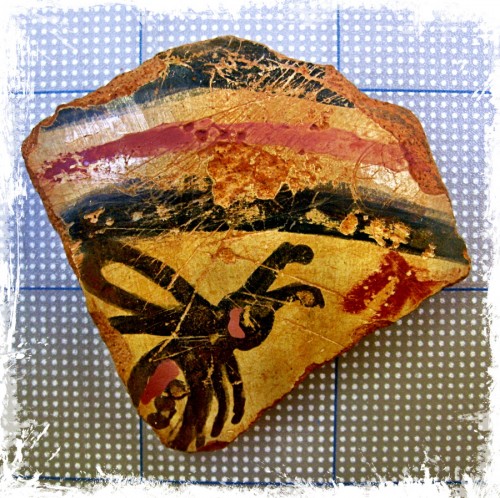
Lior hung over Zvia’s shoulder. “It’s tsir’a, a wasp,” he said. “One of your friends, Eric,” he teased the younger man, who self-consciously raised one hand to his still-welted neck.
“Or devorah, I think, isn’t it,?” Zvia corrected Lior’s biology. “A bee?”
“I don’t think that’s bichrome,” he asserted, counter-correcting.
“Is that a flower? Too bad it broke right there; it looks like a foxglove.” Zvi brought the sherd to Wayfarer. “Did you want to see? We bring up so little decorated pottery at BBY.”
“Or anything else of interest…” the draughtsman muttered over his precisely inked site plan. Wayfarer noticed that no one laughed.
Zvia said, “If it’s not an articulated masonry wall, Shams has no use for it. Although it’s true, BBY hasn’t been the most productive site, so far, either in small finds or architecturally.” She was still holding out the sherd. The professor obediently regarded the small scrap of scuffed clay, only slightly more colorful than the dirt it came out of: she saw there was indeed a bee painted there, wings spread in flight. In front of it the blunt end of a phallic-shaped object just pushed into view from one of the broken edges – Zvia’s “foxglove”.
“The clay body’s too red for bichrome…” Lior was saying, intent on his ceramic thought process. He had trailed Zvi across the room, and was now studying the piece in Wayfarer’s hand.
“A flower? Looks like a cigar to me,” joked Eric.
Lior muttered, “And I’ve seen birds and bulls and ibexes on bichrome, but…”
“Everything looks like a cigar to you,” said Shams, to Eric.
“…but never insects, or flowers…” Lior reached for the sherd and Wayfarer placed it in his palm.
“Sometimes a foxglove is just a foxglove…” she said, standing. To her, the “flower” looked like a geometric space-filler, a result of a Bronze Age potter’s horror vacui. She pushed in her chair to leave: the younger folk, archæologically fervent, were now hotly debating whether the piece was really bichrome and if not, what. She wished them goodnight, and received a polite layla tov in return.
Wayfarer left the lab mulling over the chip of colored clay displayed in Zvi’s square, grubby palm: its date and technical description were for the experts who cared about such things, but the possible flower and bee motif interested the professor, whose efficient 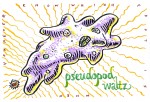 memory had shuffled to the surface a handful of lines of fragmentary but appropriate verse. Wandering out across the dark compound, the professor wondered where the foxglove nearest to this arid, rocky ridge grew: probably, she concluded, the Pleistocene.
memory had shuffled to the surface a handful of lines of fragmentary but appropriate verse. Wandering out across the dark compound, the professor wondered where the foxglove nearest to this arid, rocky ridge grew: probably, she concluded, the Pleistocene.
To be continued…
To read the next installment, Part 12 “The Nature of the Hill” click here.
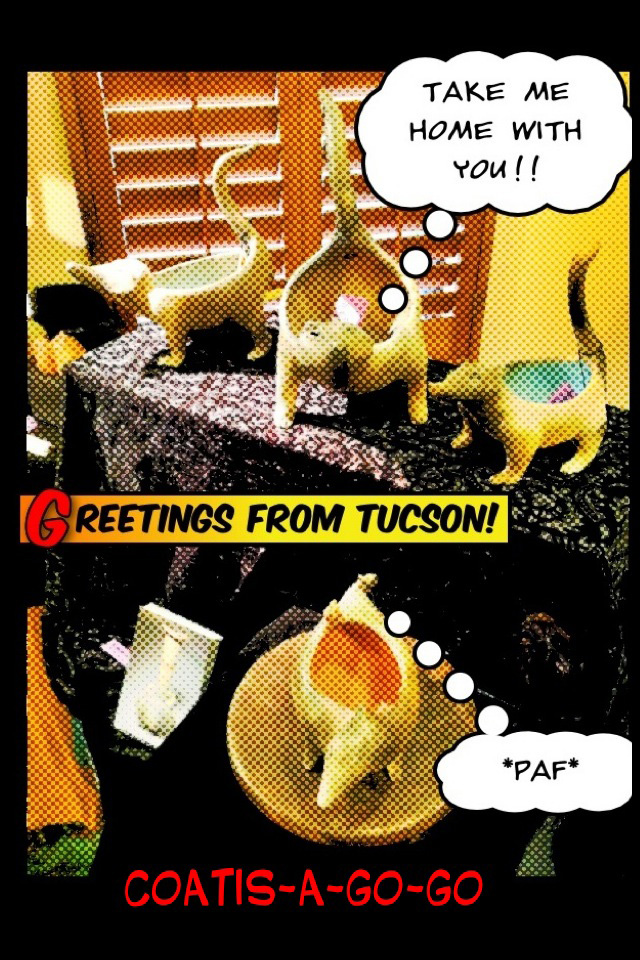 Three Star Owl is at the Tucson Bird and Wildlife Festival, at the Riverpark Inn just west of I-10 at the Congress Ave exit. I’ll be here from 8 to 5 today and tomorrow (Friday and Saturday 19-20 Aug). Come by soon, things are finding new homes at a fast clip!
Three Star Owl is at the Tucson Bird and Wildlife Festival, at the Riverpark Inn just west of I-10 at the Congress Ave exit. I’ll be here from 8 to 5 today and tomorrow (Friday and Saturday 19-20 Aug). Come by soon, things are finding new homes at a fast clip!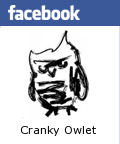
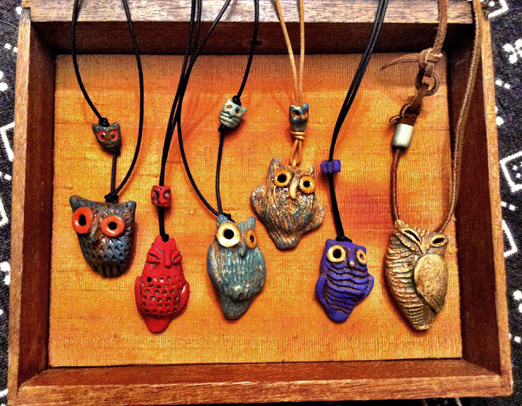
 Allison does not consider herself a wildlife artist,
but an observer who takes notes in clay.
Allison does not consider herself a wildlife artist,
but an observer who takes notes in clay.
